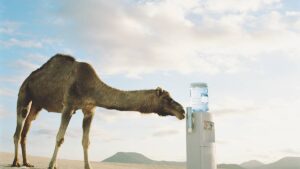Good news for biotechs as Budget exempts clinical trials from R&D refund cap

Australian biotechs last month launched a loud campaign against proposed changes to R&D tax incentives — and if Tuesday night’s federal budget was anything to go by, Treasurer Scott Morrison may have noticed.
Industry body AusBiotech said it was relieved by measures handed down overnight — which included an exemption for clinical trials within a new, tougher $4 million cap on R&D refunds.
AusBiotech chief Glenn Cross told Stockhead he welcomed “the recognition of the critical role that R&D expenditure plays in clinical trials for developing life-changing and saving medicines and medical devices”.
“By exempting clinical trials from a $4 million cap and encouraging higher intensity in R&D, Australia will keep its hard-won momentum in clinical trials and continue its growth in commercialising medical research.”
Since the R&D taxation incentive program began, Australia had experienced 5 per cent annual growth in clinical trials, he said.
Companies with less than $20 million turnover will now have annual refunds capped at $4 million. But expenditure related to clinical trials will be uncapped.
For companies claiming the non-refundable offset, a graduating premium will be introduced to incentivise higher R&D intensity, and the $100 million cap will be elevated to $150 million.
“This will ensure support for larger companies is directed towards those companies undertaking additional, high-intensity business R&D,” the budget papers said.
- Bookmark this link for small cap breaking news
- Discuss small cap news in our Facebook group
- Follow us on Facebook or Twitter
- Subscribe to our daily newsletter
“Administrative and compliance improvements that will help improve the ongoing sustainability, transparency and integrity of the R&D tax incentive will also be implemented. Together these measures will enhance the R&D tax incentive and ensure it is fiscally affordable.”
Claimants will be able to add a premium to their corporate tax rate of 4 to 12.5 per cent (currently 8.5 per cent), depending on R&D intensity (proportion of R&D expenditure over total annual expenditure), giving companies with intensity above 5 per cent a higher offset than now available.
Treasure Scott Morrison said the measure would save taxpayers $2 billion over the next four years.
Here is a list of notable ASX-listed biotech small caps that could be affected by the changes:
| ASX code | Name | R&D refunds since 2017 | Cash in the kitty Dec 31 ($) | Market Cap ($) |
|---|---|---|---|---|
| BLT | BENITEC BIOPHARMA | $5.6M/$4M | 10.27M | 41.03M |
| BNO | BIONOMICS | $6.8M | 32.02M | 270.30M |
| KZA | KAZIA THERAPEUTICS | $4.4M/$4M | 6.64M | 37.03M |
| LBT | LBT INNOVATIONS | $4M | 4.23M | 26.58M |
| MX1 | MICRO-X | $7.5M | 4.10M | 53.41M |
| PBT | PRANA BIOTECHNOLOGY | $4.8M | 19.91M | 24.03M |
| RCE | RECCE PHARMA | $5.6M | 1.13M | 12.29M |
| UBI | UNIVERSAL BIOSENSORS | $9.5M/$7.5M | 26.3M | 49.42M |
| VLA | VIRALYTICS | $4.3M/$6.5M | 22.02M | 470.26M |
AusBiotech said the life sciences sector had more to lose than other industries because of its long timeline to commercialisation — on average ten to 15 years.
The average total approval costs for a biotech are $1.5 billion to $2.2 billion.
Sweeping changes were initially forecast as a means to cut down on companies taxing the incentive ‘for a ride’.
Instead, the government also outlined plans for “integrity and affordability” through increased resourcing for administrators. “Greater transparency around who is claiming the R&D tax incentive would promote public accountability for those benefitting from taxpayer support”, as well as improved guidance material on eligible R&D activities.
’21st century medical industry plan’
The federal government also pledged $1.3 billion to support Australia as a global health industry leader in medical technology, biotechnology and pharmaceuticals while improving health outcomes for all Australians through investments in medical innovation.
“Our plan will provide more support for medical research projects, new diagnostic tools, clinical trials of new drugs, scientific collaboration and development of new medical technologies that can be sold overseas,” Treasurer Scott Morrison said.
The plan included a landmark 10-year $500 million commitment to the Genomics Health Futures Mission.
A further $707 million in funding from the Medical Research Future Fund would be provided to support the Frontier Health and Medical Research program, expanded clinical trials, Biomedtech programs and Industry Researcher Collaborations.
Cheaper beer
In another Budget measure, craft beer brewers won a lower tax rate for small kegs of 8 litres favoured by boutique brewers. That could benefit small ASX-listed craft brewer such as Gage Roads Brewing (ASX:GRB) and Broo (ASX:BEE).
UNLOCK INSIGHTS
Discover the untold stories of emerging ASX stocks.
Daily news and expert analysis, it's free to subscribe.
By proceeding, you confirm you understand that we handle personal information in accordance with our Privacy Policy.








